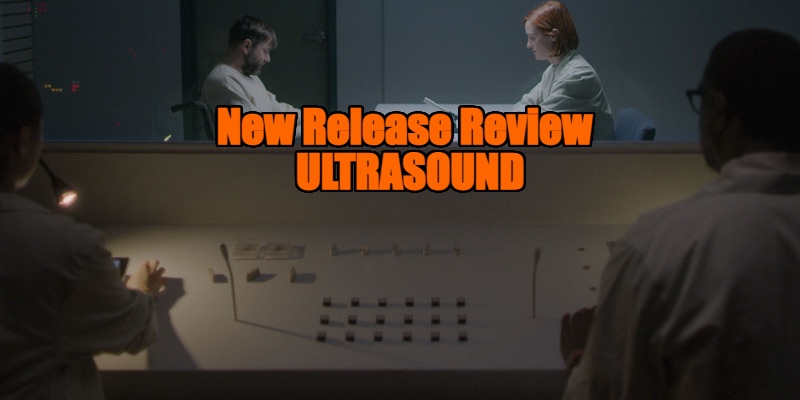
Review by
Benjamin Poole
Directed by: Rob Schroeder
Starring: Vincent Kartheiser, Chelsea Lopez, Breeda Wool, Tunde Adebimpe, Rainey
Qualley, Bob Stephenson
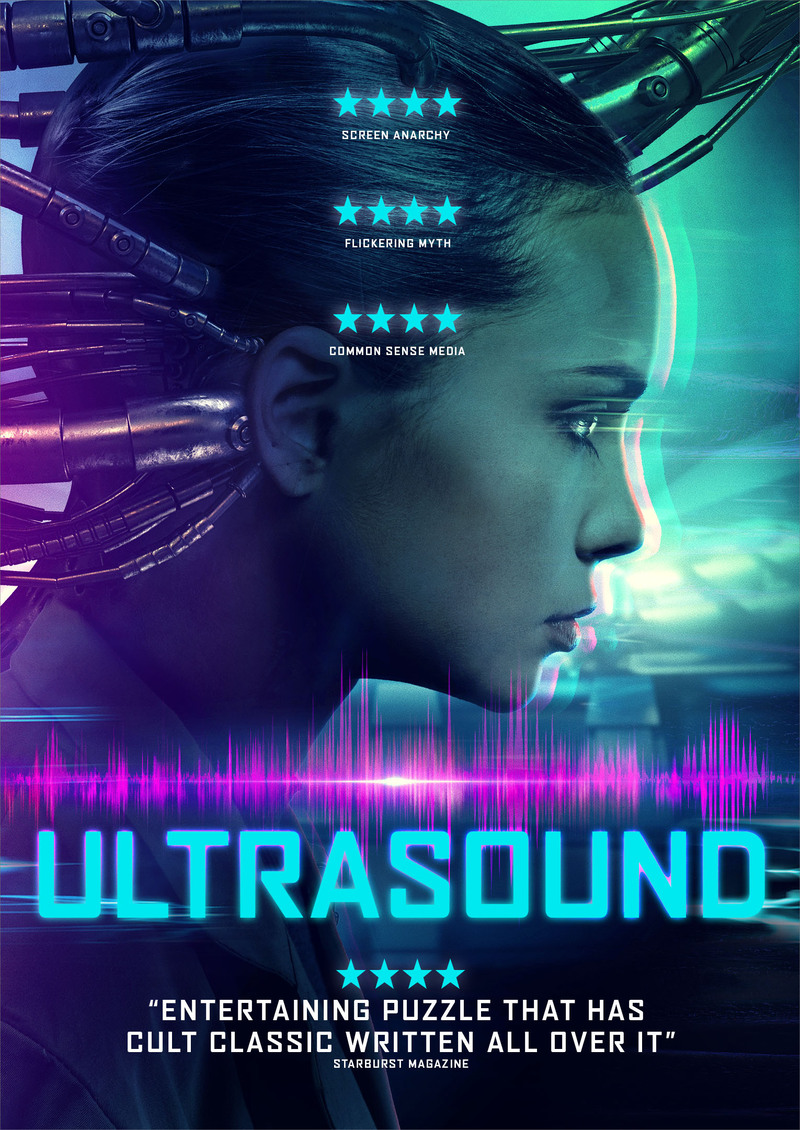
I’ll give Ultrasound, the lo-fi sci-fi debut feature from Conor Stechschulte (writer)
and Rob Schroeder (director), this much; the opening is perhaps the
most riveting and intriguing 15 or so minutes of cinema you’ll see this
year. Within a horror film mise-en-scene - hammering night time rain,
backwoods, a shotgun shack - some bloke gets a tyre blowout (via, as a
dramatically ironic close up informs us, spikes purposefully spread across
the road - yikes!). Your man (Glen - Vincent Kartheiser) rushes to
the nearest house (the aforementioned shack) where he is welcomed
enthusiastically (almost TOO enthusiastically, etc) by the residents of
the hovel: a gregarious older fella (Bob Stephenson) and his cuter,
younger and demonstrably vulnerable wife (Chelsea Lopez - a charm
throughout).
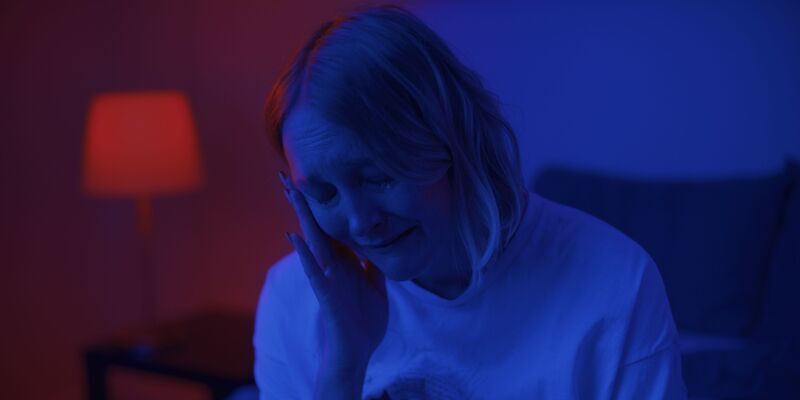
The performances are deliciously ‘off’ from these denizens; they are weird
in that abstract way which makes your skin crawl, but you can’t quite
define why. We know Glen shouldn’t be there, and he probably senses he
shouldn’t be there either, yet he stays anyway, perhaps due to the
convivial urgency of his host or maybe because he fancies putting one on
his wife. The nearest garage is shut, after all. The weather is absurdly
inclement. There’s also some sort of moonshine on the go... And then, soon
enough, when it’s time for bed, the husband announces that he is going to
take the sofa and gently urges Glen to pop on into the marriage bed with
his wife. They’re sex people, Lynn!
Come on. How would you play it? Glen’s partner has (apparently) left him.
This particular marriage is loveless. The poor woman is willing, and able,
and in deep seated need of love (what might Abraham Maslow advise?!). The
whole scenario has the thrilling life-finally-imitates-art patina of the
silliest pornography, and you could have the starring role, you handsome
stud, you. Obviously, Glen shags her. And, just when you expect him to be
murdered to death as part of the ongoing sex festival, we abruptly cut to
an indeterminate time in the future where we catch up with the
happy-go-lucky traveller, who IS ACTUALLY MARRIED AFTER ALL, and witness
his re-encounter with the cuckolded husband, who cheerfully informs Glen
that his (the man’s) wife is pregnant by him (Glen). Yikes, indeed!
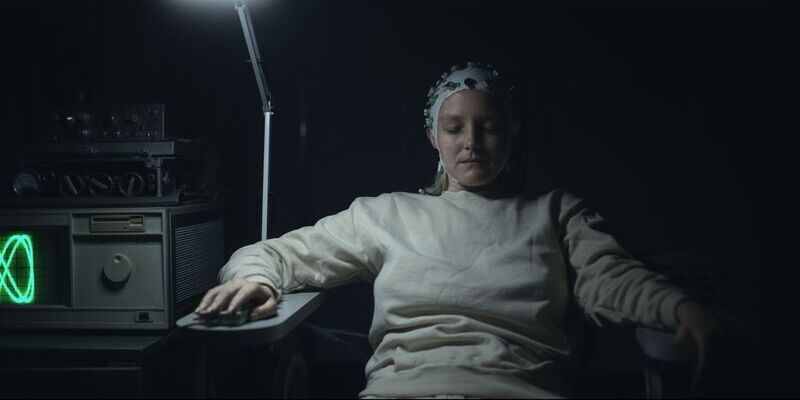
What a tangled web of betrayal, human impulse and priapic weakness.
Fantastic stuff. Just the ticket, and related by low-key performances
which are believable, and which communicate a situation that is queasily
relatable. What a shame then that Ultrasound suddenly morphs
into an airless narrative about a noise which can implant memories into
participating listeners, and it turns out that that this opening sequence
so referable and interesting was (perhaps) one of these mad little false
memories, too. I say perhaps because, after watching the film one and a
half times (I skipped again to key scenes after a full watch through), I’m
still not really sure what is meant to be going on (and I’m not dim - in a
moment I correctly use the word ‘diegesis’). Switching wholesale to a
clinic where people are encouraged to play out scenarios, which the
narrative duly visualises (but which do not actually ‘happen’ within the
diegesis of the movie), the focus of Ultrasound becomes one
of appearance versus reality; what those shadows in Plato’s cave mean. The
circumstances are anchored by graphic references to pregnancy (UltraSOUND,
yeah?), which do give the film moments of cringing body horror. But
otherwise, it’s all so opaque and antiseptic.
Ultrasound invites us to question the veracity of what we
see, but, of course, none of it is ‘real’: it’s a film! We engage with it
as a fiction. I’ve never held much truck with the supposedly ingenious
twist of The Usual Suspects, wherein we discover that everything we’ve seen is a load of old [SPOILER] flannel made up by the central character. What’s so clever about that?
Isn’t the first rule your English teacher insists upon is that ending your
story with the cop-out ‘it was all a dream’ is verboten, the cheapest of
tricks? Ultrasound’s mishandling of narrative cinema isn’t knowing or iconoclastic, but
ponderous and circumlocutionary.
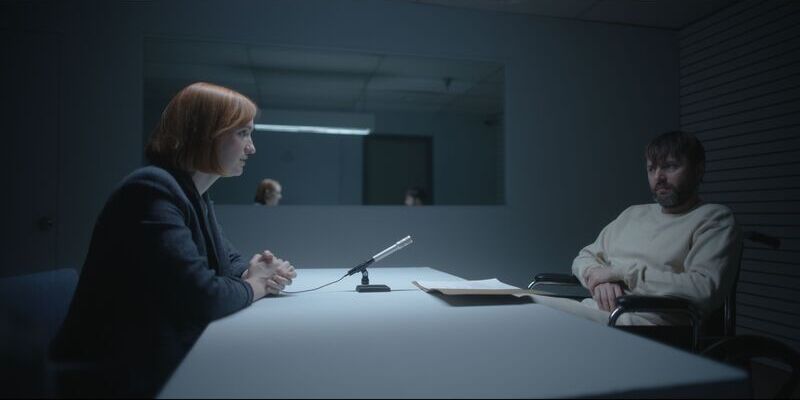
A digression: recently, for my book club, I’ve been reading 'Do Androids
Dream of Electric Sheep?', a novel which deals within a similar sci-fi set
of simulacra and shifting verisimilitudes, and as I’m reading I’m making
notes about how and why Mr. Dick was the most unfilmable of all seminal
novelists, inspiring the loosest of adaptations (the tediously overrated
film version of 'Do Androids Dream of Electric Sheep?' sells itself on
hyper-real imagery at the expense of the novel’s cynical comedy and
playful grasp of reality, an encompassing visual set which betrays the
advertising roots of its director). Perhaps it's because the written word
inspires movies in our mind, which the expert writing of Dick can
manipulate and disturb in a way which film, in which we implicitly accept
what we see, and recognise as a working fiction, isn’t as given to? I
dunno. And even though Ultrasound does pick up towards the
end, engendering a sense of urgency which the prior dreams and false
memories of its protagonists have so far failed to achieve, you might
likewise still have no idea what is going on. But, more pertinently, you
won’t care either.

Ultrasound is on UK/ROI VOD from
June 20th.

